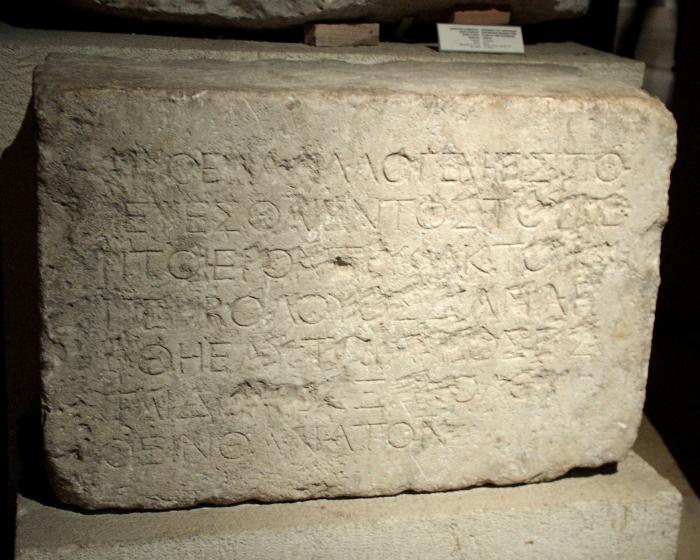NEWS
IDEA FINANCIAL SUPPORT FOR EARLY CAREER SCHOLARS
PARTICIPATING IN THE NEXT EPIGRAPHY.INFO EVENT
leggi
Dialogues sur la poésie épigraphique grecque et latine
Lyon 10-11.10.2025
leggiEPIDOC
Online drop-in sessions
leggiRESOCONTI
Bologna EpiDoc Workshop 2019
Bologna, 27-31 maggio 2019
Resoconto di Matteo Rivoli
leggiSAEG 5° Seminario Avanzato di Epigrafia Greca
Torino, 18-20 gennaio 2017
Resoconto di Francesca Giovagnorio
leggiEpiDoc Workshop Bologna 2016
Bologna, 12-14 settembre 2016
Resoconto di Irene Nicolino
leggiCfP: Voiceless writing? Epigrams, performance and oral poetry
Università di Bologna, FICLIT, 30th-31st May 2024
Organizers: Flavia Licciardello and Stella Sacchetti.
Whereas the most recent debate on epigrams focused on their relationship with their material context (see e.g. Petrovic-Petrovic-Thomas 2019), in our workshop we wish to investigate the relationship between epigrams, orality and performance, from a diachronic perspective from the archaic age, through Hellenistic and imperial time up to late antiquity.
We would like to invite proposals that can address, but are not limited to, the following questions:
- What is the relationship of epigrams with famous ‘oral’ genres beyond epos and elegy, such as theatre and lyric poetry in general? Do e.g. dialogic epigrams stage a dramatic exchange in miniature and are there recognisable references to and/or points in common with tragedy, comedy or dithyramb? Do epigrams consciously compete with epinicians and in presenting themselves as an alternative or complement to these what do they retain from their oral performance? How do epigrams explicitly or allusively address their writtenness and its limit (or potential) as opposed to oral poetry?
- What form of performance can we imagine for symposial epigrams? Do the texts maintain some elements that reveal an original performance? Do, for instance, slightly different versions of a poem signal that the text had been adapted to suit different circumstances and occasions of performance? What is the relationship with popular oral genres connected to the universe of symposial epigrams (e.g. the paraklausithyron)?
- What spaces and occasions can we imagine for the performance of epigrams beyond the Hellenistic time, in Imperial Rome or in late antiquity?
- What is the relationship between books of epigrams and oral performance? Do epigrammatic papyri preserve some elements that betray, at least for some of them, their use for some form of performance (e.g. in a symposium)? Is it possible to imagine that some collections of epigrams were formed and circulated for performative contexts?
- Were some inscribed epigrams specifically destined to be read aloud and was their reading maybe part of a ritual? Were there other occasions for such performance that were analogous to those suggested by Petrovic (2016) for the oral performance of casualty lists and commemorative verse-inscriptions?
Full text of the Call for papers – deadline 30th September 2023
